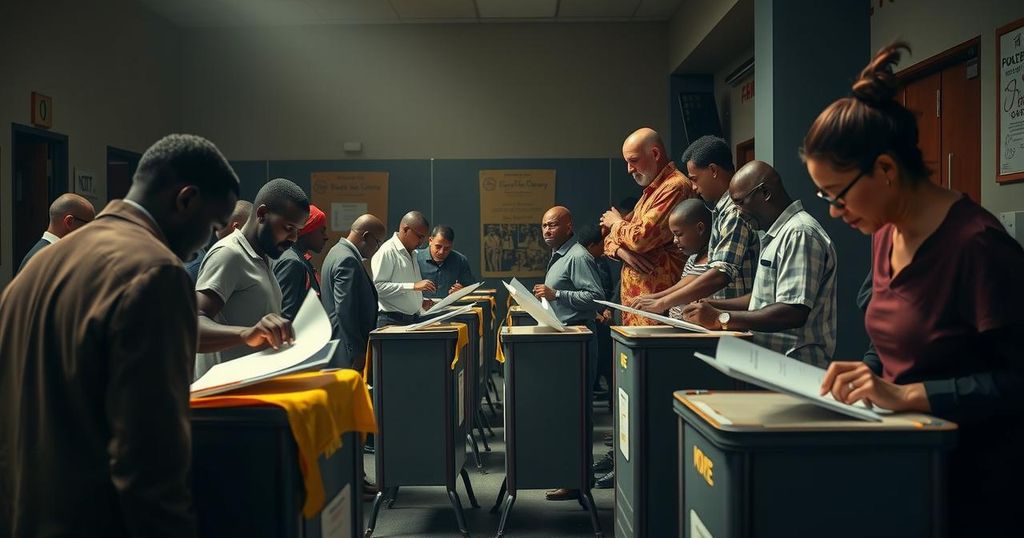Senegal Votes: President Faye Seeks Parliamentary Majority for Reforms
Senegal’s parliamentary elections have opened, with President Bassirou Diomaye Faye aiming for a majority to implement reforms addressing inflation and unemployment. Over seven million citizens are eligible to vote, and the elections follow Faye’s previous victory amid political instability. Opposition parties pose significant challenges. This election is critical for Faye to solidify his governance and respond to citizen expectations for change.
Senegal commenced its parliamentary elections with over seven million citizens eligible to cast their votes, as President Bassirou Diomaye Faye strives to achieve a significant majority. This election is crucial for Faye, who ascended to the presidency eight months ago with promises of extensive reforms aimed at addressing urgent economic and social issues such as unemployment and inflation. Polls opened at 8 AM and will conclude at 6 PM, allowing citizens to elect representatives for the 165-seat National Assembly for a five-year term. Faye’s administration, characterized by high aspirations for economic transformation and anti-corruption initiatives, encountered challenges from an opposition-led parliament shortly after his victory in March. The president had to dissolve the National Assembly in September and call for these snap elections. Amidst these political maneuvers, his government has also had to navigate a debt crisis exacerbated by discrepancies between the current budget deficit and the previous administration’s reports. The opposition alliance poses a significant threat to Faye’s ambitions, particularly with the presence of two notable opposition parties, including the APR led by former President Macky Sall. The political landscape in Senegal is demanding, especially following a tumultuous period marked by severe violence during the preceding presidential elections. The optics of governance, with promises unfulfilled and a rising cost of living, create an atmosphere where the electorate’s expectations are not fully met. Analysts suggest that historically, Senegalese voters tend to reaffirm their presidential choice in parliamentary elections, which may bode well for Faye’s governing party, Pastef. Mariam Wane Ly, a notable figure in Senegalese politics, expressed optimism regarding the political narrative put forth by the leaders during the electoral campaign, anticipating that this election could reflect a shift towards addressing public dissatisfaction. Senegal’s current circumstances illustrate a complex political dynamic poised for transformation. With the electorate focused on the necessity for reforms that address critical socio-economic issues, the outcome of these elections could determine the effectiveness of President Faye’s promised agenda.
In March 2023, Bassirou Diomaye Faye, a candidate relatively unknown prior to the elections, won the presidency amid widespread public support for reform. His administration has goals of economic transformation and social justice, particularly concerning rampant unemployment and inflation affecting the youth. Faced with challenges stemming from opposition parties, Faye moved to dissolve the parliament in September 2023 and called for snap elections, which are now underway. The political climate in Senegal has been tumultuous, marked by previous violence and protests, which add to the urgency of these elections as citizens seek stability and effective governance.
The parliamentary elections in Senegal represent a crucial juncture for President Bassirou Diomaye Faye and his government, as they seek to solidify their mandate and push forward with essential reforms aimed at economic and social revitalization. With substantial voter engagement and a strong political narrative, Faye’s hopes to achieve a parliamentary majority may determine the trajectory of his administration. The outcome will be closely monitored as it reflects the electorate’s response to the promises made since his ascendance to power.
Original Source: www.aljazeera.com




Post Comment